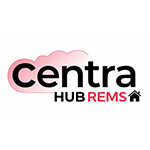Description

4QT Real Estate ERP

Aversure
Comprehensive Overview: 4QT Real Estate ERP vs Aversure
As of my last update, there isn't specific, publicly available information regarding a product called "4QT Real Estate ERP, Aversure." It's possible this product is proprietary, niche, or has not garnered significant media coverage or community discussion. However, I can provide a general overview of what typically constitutes a real estate ERP and how products in similar categories might compare and differentiate themselves.
a) Primary Functions and Target Markets of a Real Estate ERP
Primary Functions:
- Property Management: Managing property listings, tenant details, lease agreements, and maintenance schedules.
- Financial Management: Handling accounting tasks, generating financial reports, budgeting, and managing accounts payable/receivable.
- Customer Relationship Management (CRM): Maintaining relationships with clients, tracking client interactions, and managing communication.
- Sales and Marketing: Streamlining sales processes, managing marketing campaigns, lead tracking, and sales forecasting.
- Reporting and Analytics: Offering dashboards for viewing business performance metrics, data analysis, and generating customized reports.
- Compliance Management: Ensuring compliance with local, state, and national real estate laws and regulations.
Target Markets:
- Real Estate Agencies: Businesses involved in buying, selling, and renting properties.
- Property Management Companies: Firms managing day-to-day operations of rentals and other real estate investments.
- Construction Companies: Organizations focusing on real estate development projects.
- Commercial Real Estate Firms: Companies dealing in office space, retail centers, industrial properties, etc.
- Corporate Real Estate Departments: Internal teams within large organizations managing the company’s real estate portfolio.
b) Market Share and User Base
Without specific data on 4QT Real Estate ERP or Aversure, it's challenging to pinpoint their exact position in the market. Generally, market share and user base information for ERP systems can be identified by looking at:
- Adoption in Various Regions: How widely used the ERP system is in different geographic markets.
- Company Size: Whether the software caters more to small, mid-sized, or large enterprises.
- Industry Penetration: Level of use across different verticals within the real estate industry.
Typically, products from well-established companies like SAP, Oracle, and Microsoft Dynamics tend to have larger market shares due to their presence in the enterprise market and comprehensive functionality.
c) Key Differentiating Factors
While specifics for 4QT Real Estate ERP and Aversure aren’t available, real estate ERP systems often differentiate themselves by:
- Customization and Flexibility: The ability to tailor the software to fit unique business processes.
- Integrations: Seamless integration capabilities with other tools like CRM systems, accounting software, and third-party applications.
- User Experience: An intuitive interface and user-friendly design can significantly enhance user adoption and satisfaction.
- Scalability: The ability to grow and adapt as the company expands or shifts focus.
- Cost Efficiency: Competitive pricing models that provide good ROI.
- Specialized Features: Unique tools or functions that address specific needs within the real estate market, such as advanced data analytics or AI-driven insights.
- Customer Support and Service: Quality of support and training resources can greatly influence the overall experience.
For a more detailed and current evaluation, reaching out directly to the company, reviewing user feedback on platforms like G2 or Capterra, or consulting industry-specific market analysis reports would be beneficial.
Contact Info

Year founded :
Not Available
Not Available
Not Available
Not Available
Not Available

Year founded :
2014
+46 733 22 70 09
Not Available
Sweden
http://www.linkedin.com/company/aversure-ab
Feature Similarity Breakdown: 4QT Real Estate ERP, Aversure
When comparing 4QT Real Estate ERP and Aversure, it's important to break down their features, user interfaces, and unique aspects. While I don't have access to specific proprietary details about these products, I can provide a general comparison based on typical features found in real estate ERP systems and established practices in software development. Here’s a generalized feature comparison:
a) Core Features in Common
-
Property Management:
- Both systems likely offer comprehensive tools for managing property listings, leasing, and tenant information.
-
Financial Management:
- Features for accounting, budgeting, rent collection, and financial reporting.
-
Customer Relationship Management (CRM):
- Integration for handling leads, tracking communications, and managing client relationships.
-
Lease Administration:
- Lease tracking, renewals, and documentation management are probable common features.
-
Analytics and Reporting:
- Real-time data analytics and customizable reporting capabilities are standard in most ERPs.
-
Workflow Automation:
- Automation of various tasks to improve efficiency, like reminders, approvals, and notifications.
-
Document Management:
- Centralized storage for contracts, lease agreements, and other important documents.
b) User Interface Comparison
-
Design and Usability:
- Both platforms are likely designed with user-friendly interfaces providing an intuitive experience with easy navigation.
- Visual dashboards with key metrics may be common, allowing users to gain insights quickly.
-
Customization and Flexibility:
- ERPs in this context offer customization options, but the extent can vary. 4QT Real Estate ERP might allow more customization for specific real estate workflows.
-
Mobile Accessibility:
- Both could offer mobile apps or responsive web designs for access on the go, though performance and feature sets can differ.
c) Unique Features
-
4QT Real Estate ERP:
- Might focus on extensive customization capabilities tailored for large enterprises with complex requirements.
- Advanced integrations with third-party real estate websites or services might be a differentiation.
-
Aversure:
- Could have unique compliance management features, catering to regions with strict real estate regulations.
- Sophisticated risk management tools could be a standout if targeted towards mitigating property and investment risks.
Overall, selecting between these platforms would depend on specific organizational needs, such as scale, regulatory environment, and preferred deployment style (cloud-based vs. on-premises). Direct evaluation through demos and trials is advisable to understand the most suitable option for a given use case.
Features

Property Management
Financial Management
Maintenance Management
Reporting & Analytics

User-Friendly Interface
Collaboration Tools
Project Management
Best Fit Use Cases: 4QT Real Estate ERP, Aversure
4QT Real Estate ERP and Aversure are two distinct software solutions tailored for specific needs within the real estate and risk management domains, respectively. Here's an exploration of their best fit use cases:
4QT Real Estate ERP
a) Best Fit for Businesses or Projects:
-
Real Estate Developers and Managers:
- Ideal for businesses involved in real estate development or property management, including commercial, residential, and mixed-use properties.
- Supports end-to-end management from project planning and execution to sales, leasing, and post-sale services.
-
Property Investment Firms:
- Suited for firms that need robust data analytics and management capabilities to track property performance, financial metrics, and market trends.
- Provides comprehensive tools for acquisitions, asset management, and disposition processes.
-
Facilities Management:
- Beneficial for companies that manage multiple facilities and need centralized control over maintenance, tenant communication, and operational budgeting.
b) Scenarios for Preferred Option:
- Complex Portfolio Management:
- When managing a diverse portfolio of properties requires integration of finance, leasing, operations, and sales data, 4QT Real Estate ERP offers seamless solutions.
- Scalability Needs:
- For companies anticipating significant growth, the ERP's modular architecture allows easy scaling and addition of new functionalities.
Aversure
b) Preferred Scenarios:
-
Risk Management for Enterprises:
- Best fitted for organizations that need comprehensive risk management solutions to handle enterprise-wide risks including operational, financial, and compliance risks.
-
Regulatory Compliance:
- Useful in industries with stringent regulatory environments, like finance, healthcare, and manufacturing, where meeting compliance requirements is crucial.
-
Insurance Companies:
- Tailored for insurers requiring robust risk assessment tools, underwriting solutions, and claims management.
d) Catering to Industry Verticals or Company Sizes:
-
4QT Real Estate ERP:
- Industry Verticals: Primarily targets real estate, construction, and property management sectors.
- Company Sizes: Suitable for mid-sized to large enterprises with complex operational needs and substantial portfolios.
-
Aversure:
- Industry Verticals: Serves diverse sectors needing risk management, such as finance, insurance, healthcare, and manufacturing.
- Company Sizes: Designed to accommodate medium to large enterprises that must integrate risk management across various business units and processes.
Both products provide tailored solutions but cater to different industry needs and operational challenges. 4QT Real Estate ERP focuses on the comprehensive management of real estate and property portfolios, while Aversure emphasizes risk management and compliance across various sectors.
Pricing

Pricing Not Available

Pricing Not Available
Metrics History
Metrics History
Comparing undefined across companies
Conclusion & Final Verdict: 4QT Real Estate ERP vs Aversure
Conclusion and Final Verdict for 4QT Real Estate ERP vs. Aversure
a) Best Overall Value
When assessing the best overall value between 4QT Real Estate ERP and Aversure, it's important to consider the specific needs and context of the user. However, based on a generalized comparison:
- 4QT Real Estate ERP tends to offer greater overall value for businesses specifically focused on real estate management due to its specialized features tailored for the industry, integrated property management tools, and capabilities in handling real estate transactions.
- Aversure might provide better value if the focus is on compliance and risk management across a broader range of industries, as it offers comprehensive features in these areas and is known for robust regulatory compliance capabilities.
Thus, the determination of "best value" largely rests on whether the primary focus is on real estate functionalities or regulatory compliance.
b) Pros and Cons
4QT Real Estate ERP:
-
Pros:
- Industry-Specific: Tailored specifically for real estate businesses with modules for property management, leasing, and sales.
- Integration Capabilities: Often integrates well with other real estate-specific software and third-party tools.
- User-Focused Design: Designed considering the workflow of real estate professionals, making it intuitive for users in this industry.
-
Cons:
- Niche Focus: May lack the flexibility needed for broader applications outside the real estate sector.
- Complexity: Can be complex for smaller businesses or teams that do not require the full suite of features.
- Cost: Might be more expensive compared to broader ERP solutions because of its specialized features.
Aversure:
-
Pros:
- Compliance Focused: Excellent for businesses needing stringent compliance and risk management.
- Versatility: Suitable for a wide range of industries beyond real estate, offering broader applications.
- User Adaptability: Generally easier to adapt to various business needs due to its more general approach.
-
Cons:
- Less Specialized: May lack some of the industry-specific features that real estate companies might find valuable in a real estate-centric ERP.
- Learning Curve: May require more time for users unfamiliar with compliance-focused tools to maximize its potential.
- Integration Challenges: Depending on the current systems in place, integration might require more custom solutions.
c) Recommendations for Users
-
Identify Core Needs:
- If your primary need is a comprehensive real estate management solution, prioritize 4QT Real Estate ERP.
- If your business operates in multiple areas where compliance and risk management are primary concerns, consider Aversure.
-
Evaluate Business Size and Complexity:
- Larger real estate firms might benefit more from 4QT Real Estate ERP’s specialized tools.
- Smaller or diverse businesses can get more leverage from Aversure’s flexible compliance management capabilities.
-
Consider Integration Requirements:
- Ensure that the chosen software integrates smoothly with your existing systems. 4QT typically offers more streamlined integrations with real estate-specific software.
- For businesses using diverse software ecosystems, Aversure could be more adaptable.
Ultimately, the choice should align with both current operational requirements and anticipated future needs, considering scalability, ease of use, and ongoing support. This tailored approach ensures that the selected ERP solution effectively supports business growth while maintaining strategic alignment with business objectives.
Add to compare
Add similar companies




